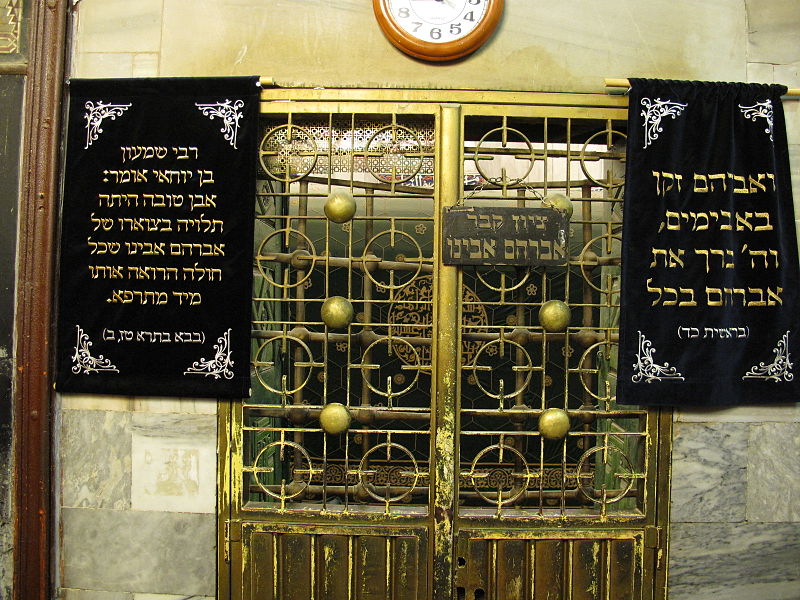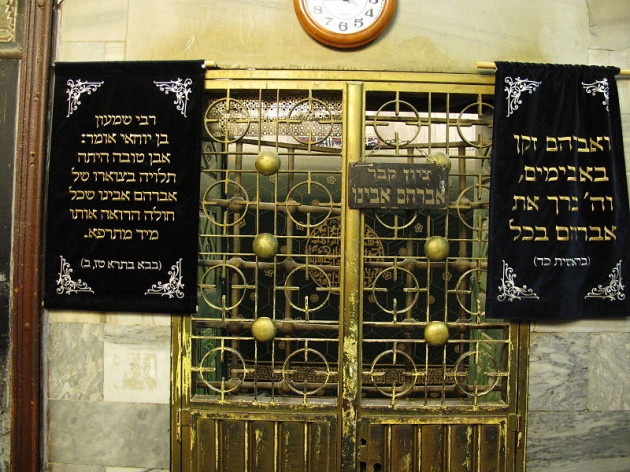
Kiryat Arba, That Is, Hebron

The Cenotaph of Abraham. (Photo Credit: A ntv, Wikimedia Commons.)
The first time a Jew bought land in the Biblical Land of Israel was for a burial plot of a woman, the matriarch Sarah. This story is recounted in Parshat Chayei Sarah, which is the Torah portion read this year in mid-November that can be translated literally as “the life of Sarah.” But Parshat Chayei Sarah isn’t about Sarah’s life, it’s about her death. It is Sarah’s death that allows the Jewish people to stake a claim in their land.
We see Abraham mourn Sarah’s passing, but his mourning is strategic. He asks the “people of the land, the Hittites” (Genesis 23:7) if he can buy a burial cave for her on the corner of their property. The Hittites initially offer him the land for free, but Abraham insists on buying it legally. In his moment of grief, and on behalf of the death of Sarah, he takes the opportunity to begin conquering the land of Canaan for Israel. Sarah, the nominal focus of this portion does not speak. Sarah has no stated wishes about where she is buried. Because she is dead, she has no say in the transactions done in her name.
One comment on “Kiryat Arba, That Is, Hebron”
Comments are closed.




Crystal reportage and insight. For me the parsha it begs the question: What is the exclusivity and perpetuity of “proof text” domain legalities? Who advocates for a vanished group (ie. HIttites)? Why is machpelah, the cave, used in argument to extend and extend and extend? What is the resolution to any territorial claim dispute? I do not know the answer but legal challenges are more than good theater, they are pathway to justice. Closer to this homeland, how is Manifest Destiny understood in 2016?